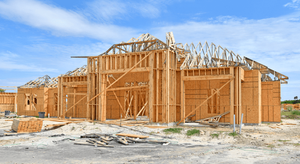OK, so we hired the architect and had the plans drawn. The next step for us was hiring the right contractor. This can be one of the most frustrating processes. It was frustrating at times, for a few reasons:
Contractors were all over the board for pricing on our project.
Getting contractors to call you back and get bids in a timely manner was hard.
Some contractors did not even call back or send the bid in they promised us.
Here is the thing, contractors are busy and only take certain jobs that fit into their schedule or their size of job. So what we did was interview six contractors. This is a long process, and after six we found one we liked.
Getting Your Ducks in a Row
When interviewing have a couple things in place before you meet with them.
Have an idea of what you want your budget to be. This is where talking to a mortgage broker will help in qualifying and identifying the right renovation loan program and payment. The next blog will be about this.
Get a list of questions you want to ask the builder. I am big into lists and questions.
Decide what type of contractor you want. My wife and I had the same kind of ideas of what we wanted. We wanted someone who did business like me. I wanted a contractor that was responsive, followed up, worked with us on our budget, and had great suggestions on ways to change the plan to fit the budget
Where to Find Contractors
There are lots of places to find contractors. Here is where we looked.
Referrals from friends and clients
Referrals from Realtors I know
Driving around - we saw other projects in Forest Hills and Smyrna and got the contractors information.
Greater Atlanta Home Builders Association and get their list of builders/contractors.
Here is one thing to thing about setting up appointments with contractors. Find contractors that work with your type of project. I ran into this when I met with a couple of contractors. My wife and I interviewed a contractor that was a bigger builder, really nice and professional person. He came to our house and I walked him through the scope of work. He said that he probably will not be able to help us because our job would be to small for his company. The best way to avoid this is to ask the contractor questions about your project and budget when you are calling to set an appointment.
Question to Ask a Contractor - When Setting an Appointment
Can you take on new jobs now?
Does your company handle projects with our size of budget?
What is your turn around time for when we meet to when we can get an estimate?
Ask those three questions. If the contractor can take on new jobs and your size of project, then I would set an appointment. The biggest thing is to find out if they can handle the project size. What you will mostly likely find out is that some contractors will not be able to take on budget because it is to small or they do not have time. No sense in wasting yours or the contractors time.
Questions to Ask a Contractor - During the Appointment
How long have you been in business building homes?
We have a budget. Are you good working with out level of budget?
Do you do a lot go projects in Smyrna or Forest Hills? Forest Hills is the subdivision I live in. If your home is in East Cobb or Indian Hills subdivision- find out how many projects the contractor has done there. By knowing the area, they should have a good grasp on the different codes and laws for cities and counties.
Can you help us to cut costs or come up with alternative solutions to keep the project in line with our budget?
Who are your sub-contractors- such as plumber, electrician, etc.?
How many jobs do you have going now?
How often will the architect be involved? (that is if you have one)
How do you organize the scheduling on a project?
Will we have a weekly meeting to talk about progress, next steps, and what is needed?
Will you give us a contract that outlines all the parts of the project in detail?
Is there an overage built in so that if we run into problems there will be money in the budget?
Will you provide and pull all permits?
How do you handle changes orders? Approval process, fees, etc.
How often do you invoice? (Monthly, bi-monthly, etc.)
When bidding a project how many bids do you get per trade?
What type of warranty is provided and length? What items are warrantied beyond this length?
Do you provide an owner’s manual at the completion of the project? (Manufacturer’s warranties, product information, sub-contractor contact information, etc.)
Have you built any homes similar to this one?
How long do you expect this project will take to get finished?
How do you like working with an Architect? What are the positives? What are the negatives?
Can you provide a reference list and show us some of your projects in different stages?
Do you carry all the proper insurance?
Have you ever had any lawsuits in the five years?
Reviewing Estimates
After you talk to and get the estimates from the different contractors you interviewed, you have to review them. I reviewed the estimates and then talked to my wife about it. I took all the estimates and started comparing the individual line items. For example, painting the interior and exterior of the house. The highest bid we had was $24,000 (which is ridiculous) and the lowest was $7,000 - I thought that was more in line with what I would expect. What you are going to see is that each contractor will be high in some areas and lower in others. Once you have compared the line items and overall budget - I dropped the lowest and the highest. The reason is that the lowest was underbid and the highest was too far above. Both of these scenarios can cause problems with you renovation loan. With a renovation loan, you will have a certain amount of money in your budget and then a 10 percent contingencies for any overages that occur. For someone who is under bidding the project you might end of using all 10 percent of the contingency and then have to pay out of pocket. To high of a bid could force you to bring additional money to the closing or not being able to complete the project. Money wasted.
Here is a thing to think about - depending on how the estimates come in - you can always talk with your builder about bringing in your own contractors for the job. This could be a painter, electrician, plumber, etc. That might be able to save you some costs. The only thing that I would caution is that if you bring in your own contractors for certain parts of the project and something happens then you are responsible for the fix - meaning you have to deal with the contractor or pay more money out. If you use the contractors people - the contractor would have to correct it and the mistake is on his men. Here is some more information on hiring contractors for the different areas of your renovation.
Budgeting and Cost Cutting with the Contractor
We got bids all over the place. One was double our budget. When you narrow the estimates down to a few contractors, go back and talk to them about budget solutions and negotiate with them on their overall price. You will have to make some sacrifices when renovating. It always happens. Because of our budget here are the cuts we made.
The carport and driveway. We wanted the square footage of the house and that is where you get more value.
Beams in the ceiling - we had beams in our kitchen and sitting area and we decided that the beams were to costly. we felt the money could be spend better elsewhere.
Corner windows - we had corner casement windows. It was an awesome look but really, really expensive. The reason for this was that they had to cut into the brick, re-support, and frame all the windows. So we decided to keep the same window placement but make them bigger. Huge savings.
We also negotiated with our contractor a little on price. Talk with each contractor and find out what their ideas or ways to bring the costs down without sacrificing quality and the overall scope of the project.
Hiring the Right Contractor
While going through this whole process of finding a contractor, you will start to narrow down the contractors and will eventually find the right one. We chose out contractor, Kevin, based on a number of things.
How prompt he was in returning phone calls and appointments.
His ideas on cost cutting and what we can add to the project. On our plans we had hardiplank for the new addition - I felt it needed something to tie it in with the brick. He suggested 1/2 hardiplank and then a 8 foot brick wall around the entire addition to tie in with the brick the existing brick. Excellent idea.
His business model - He keeps to timelines and he will have a weekly meetings about progress and next steps with us.
His references and projects completed - He gave us references and drove us around to look at projects that were in different phases of construction.
Overall, we are very satisfied with the process and with our choice of contractors. Make sure when interviewing that you ask for references and look at the contractors projects. That will help you to see the quality of work and feel more comfortable with the contractor you choose. Hiring the right contractor can be frustrating. If they are good, they are worth their weight in gold.
If you missed the first few steps of the process read below.
Steps in the Renovation Process







